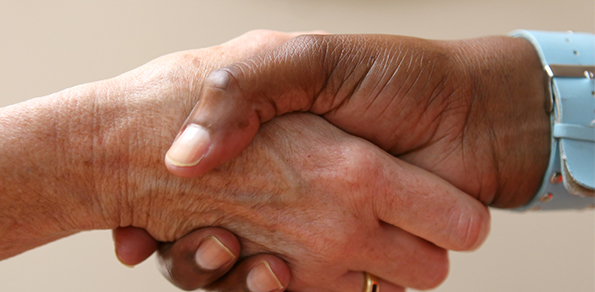Self-Care for Caregivers booklet
Caregivers are usually alert to the stresses of people they help. They are not, however, always as alert to the stress and fatigue that can slowly surface in their own lives.

Common sources of stress that caregivers may experience include:
- Trying to live up to their clients’ high expectations and/or their own
- Intensive caring for others at the expense of self-care
- Inability to set appropriate boundaries
- Pushing themselves too hard
- Mental and physical demands
- Long hours on the job
- Time pressures
- Limited resources
- Competing priorities
- Political and organizational pressures
- Media requests
Responding to Stressful Events: Self-Care for Caregivers, a publication by the Public Health Agency of Canada, was developed to address issues of caregivers (physicians, psychologists, social workers, nurses, psychiatrists, teachers, counselors, and other health workers) working in the aftermath of natural or human-caused disasters such as earthquakes, health emergencies, terrorist attacks or acts of war. The information is equally applicable to those working in sustained caregiver situations, caregiving in family and institutional settings, and community services for marginalized and multi-barriered populations.
The massive effort put forth by caregivers to address emergency and chronic challenges is critical to sustaining our communities. However, without conscious attention to self-care, caregivers’ effectiveness and long term health suffer. The airline analogy of putting on your own oxygen mask before attempting to assist others, even your own children, comes to mind.
Common physical/behavioural reactions include:
- Fatigue
- Loss of appetite
- Difficulty falling asleep
- Restlessness
- Headaches
- Changes in sleeping
- Increased blood pressure
- Changes in eating habits
- Increased susceptibility to colds, flu, infection
- Changes in libido
- Changes in smoking habits
- Changes in alcohol and drug consumption
Common emotional reactions include:
- Feeling helpless, overwhelmed, inadequate, fragile, vulnerable, unable to cope or go on
- Increased mood swings
- Decreased motivation
- Feeling burned out
- Crying more frequently and easily
- Isolation
- Changes in communication patterns and other relationship dynamics
- Withdrawal
Common cognitive reactions:
- Confusion
- Difficulty making decisions
- Difficulty problem solving
- Memory blanks
- Having ambiguous feelings
- Questioning why this happened in a world that is supposed to be safe
- Difficulty concentrating or paying attention
The booklet stresses that, “although many of the underlying stresses cannot be prevented, you can increase your resistance by taking care of yourself and staying healthy. It is important to pace yourself and know your limits so you can continue to be available to your clients and your community.”
An outline of the recommendations in the pamphlet include:
- Eat sensibly and keep hydrated
- Take time off when you feel exhausted and respect commitment to scheduled time off
- Stay connected to family and friends and listen to them if they become concerned for your health
- Engage as much as possible in your normal social and recreational activities
- Get rest when you can
- Be observant for changes in your mood, habits and attitudes
- Seek advice in problem solving for your clients and yourself
- Include yourself on the list of people you are taking care of
- Find opportunities to laugh.
Finally, the booklet recommends that it is time to seek professional support, if you:
- Can’t return to a normal routine
- Are feeling extremely helpless
- Are having thoughts of hurting yourself or others
- Are using alcohol and drugs excessively
Other PHAC booklets available in this series include:
- Responding to Stressful Events: Helping Children Cope
- Responding to Stressful Events: Helping Teens Cope
- Responding to Stressful Events: Taking Care of Ourselves, Our Families and our Communities
